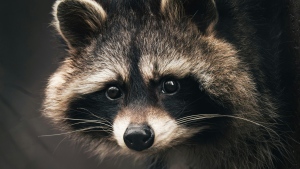Quebec’s Environment Ministry has confirmed a case of racoon rabies in the Eastern Townships.
The infected racoon was found dead on Dec. 17 in the U.S./Canada border town of Saint-Armand, about 80 kilometres southeast of Montreal.
“Thanks to the vigilance of residents who reported it to the authorities and the quick intervention of wildlife specialists from the ministry, the animal was retrieved on the same day for analysis,” the ministry said in a release. “This is the first case of raccoon rabies in Québec since 2015.”
Another animal was discovered with the disease about 1.4 kilometres south in Highgate, Vermont earlier in December. Several racoon rabies cases have been identified in Vermont, the ministry said.
The Canadian Food Inspection Agency tested the Quebec racoon in January and confirmed that it carried rabies.
Quebec deployed a raccoon vaccine program in 17 Eastern Townships municipalities in April after a rabid raccoon was identified in Vermont.
The provincial government said the situation is being closely monitored in collaboration with U.S. authorities.
More vaccination deployment is planned for raccoons, skunks and foxes this year.
“An analysis is underway to determine the best intervention strategy, which will be tailored to the situation,” the ministry said.
Those who live in the area are advised to do the following to prevent transmission of the disease:
- If you have been bitten or scratched by an animal or have come into contact with its saliva, clean the wound with soap and water for 10 to 15 minutes, even if it appears to be minor, then call Info-Santé 811 immediately for advice on appropriate medical care.
- Never approach an unknown animal, even if it seems harmless and healthy, as it could bite you and transmit rabies to you. An animal can be a carrier of the disease and develop symptoms several days or weeks after being infected.
- Have dogs or cats vaccinated against rabies and ensure their vaccinations are up to date.
- Determine if it is relevant to vaccinate your other animals that go outside (e.g. livestock).
- Determine the risk of rabies transmission if your pet has been in contact with a wild animal or is showing suspicious signs of rabies.
Those who spot dead, disoriented, injured, unusually aggressive or paralyzed raccoons, skunks or foxes are asked to call 1-877-346-6763 or complete an online form.
The ministry reminds residents to never touch dead animal carcasses with bare hands and do not attract wild animals by feeding them or leaving exterior garbage cans open.




